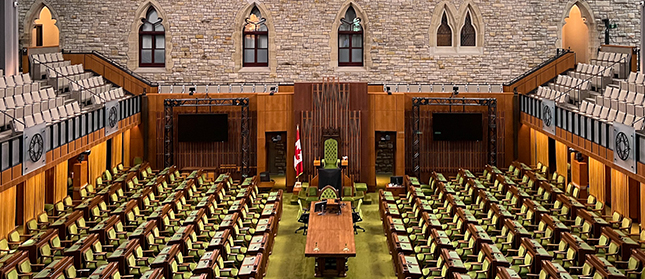Amid political fireworks and uncertainty, the Federal Government did release its 2024 Fall Economic Statement (FES).
It’s unclear what, if any, proposals in the FES will get implemented, especially considering the political uncertainty in Ottawa, but it did contain a few notable items for the trucking industry.
Firstly, FES 2024 proposes to fully extend the Accelerate Investment Incentive (AII) to 2029, with a four-year phase out after 2029. Extending this incentive was one of CTA’s main financial requests as the AII was set to be phased out.
The FES makes worker protection against wage theft a priority. The Canadian Trucking Alliance believes this ESDC measure to punish wage theft is partly in response to the Driver Inc. misclassification scheme in trucking and the underground economy that supports it, which CTA has been warning about for years.
Recognizing that penalties for wage theft need to be tougher, the government is proposing to “substantially increase the penalties imposed on federally regulated employers who commit wage theft”, stating they will consult on the proposed penalty amounts.
Relatedly, under the FES, Canada Revenue Agency would receive more funds ($451.5M over five years, starting in 2025–26), for audits to combat the underground economy, namely, to “conclude audits of emergency business subsidy amounts” and “close major tax compliance gaps.”
The government says these investments would enable the CRA to “require tax cheats to pay their fair share by enhancing compliance coverage over non-filers with a high likelihood of tax owing, particularly in the high net-wealth population and those active in the underground economy.”
Notoriously, the Driver Inc. scheme is based on employers misclassifying true employees as independent workers to neglect paying such things as payroll taxes, health taxes and many other benefits and entitlements, while the workers wrongly file as Personal Service Businesses (PSB) to avoid paying income taxes.
While these announcements appear to be a good step for the trucking industry, economic headwinds and a growing debt load remain big concerns. With a $62 billion deficit in the last fiscal year, the federal government has clearly blown past former Finance Minister Chrystia Freeland’s commitment to keep the shortfall at or below C$40.1 billion.
In her letter to the Prime Minister yesterday, Freeland acknowledged the need for fiscal prudency as president-elect Trump’s threat of 25-percent US tariffs on Canadian goods hovers over our economic landscape. Freeland said Canada needs to “eschew costly political gimmicks … and recognize the gravity of the moment.” She warned that Canada needs to prepare and plan for contingency plans in the event of a “trade war.”
Trump said he would impose 25-per cent tariffs on imports from Canada and Mexico unless both countries improve border security, including clamping down on the illegal transport of narcotics and people. CTA and other provincial trucking associations have been vocal on the need to help secure the border and demonstrate our industry’s commitment to supply chain security.
“As a nation, we must treat threats of tariffs as a wake-up call. All levels of government must be collectively prepared to introduce budget measures that make our business community stronger and more economically competitive,” said CTA president Stephen Laskowski.
The FES did state the federal government will “provide a $1.3 billion comprehensive border security package to Public Safety Canada, the Canada Border Services Agency, the Communications Security Establishment, and the Royal Canadian Mounted Police”.
However, no specific details were provided on how these funds will be spent.
The FES also noted that work led by CTA on addressing internal trade barriers in Canada’s truck transportation sector, with a pilot to mutually recognize regulatory requirements across provinces and territories, will aim to eliminate the internal trade challenges faced in the trucking transportation sector.
CTA will continue to keep members apprised of the fluid political situation in Ottawa and any related developments to this year’s Fall Economic Statement.


